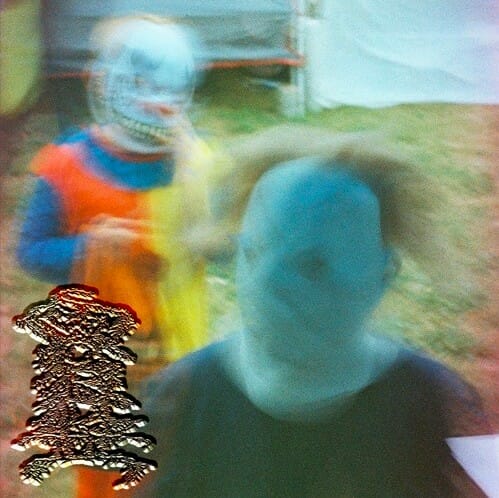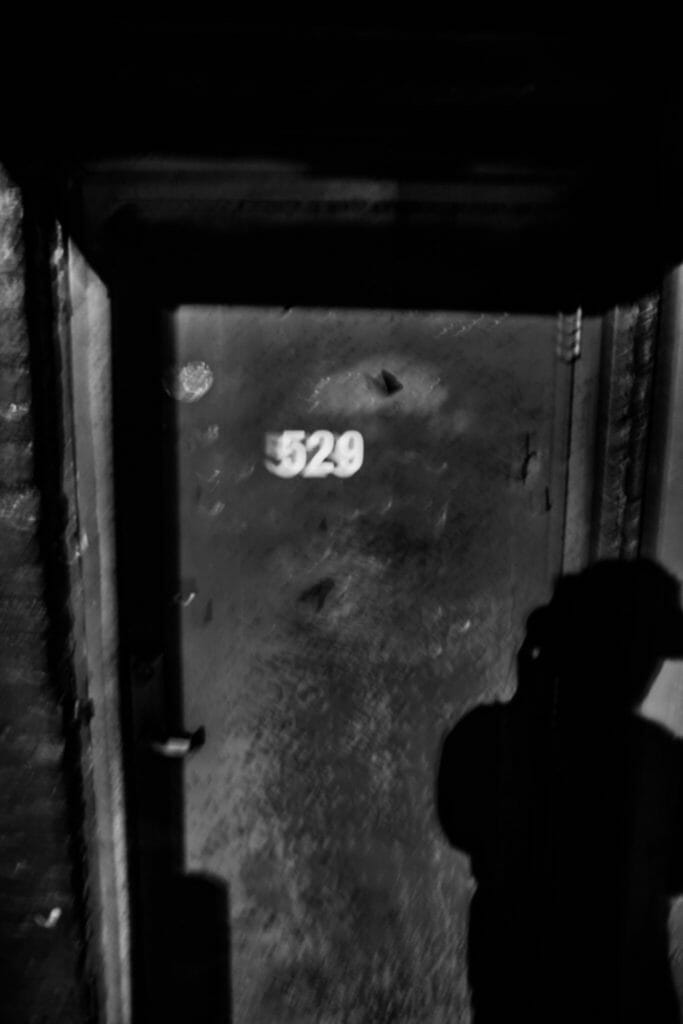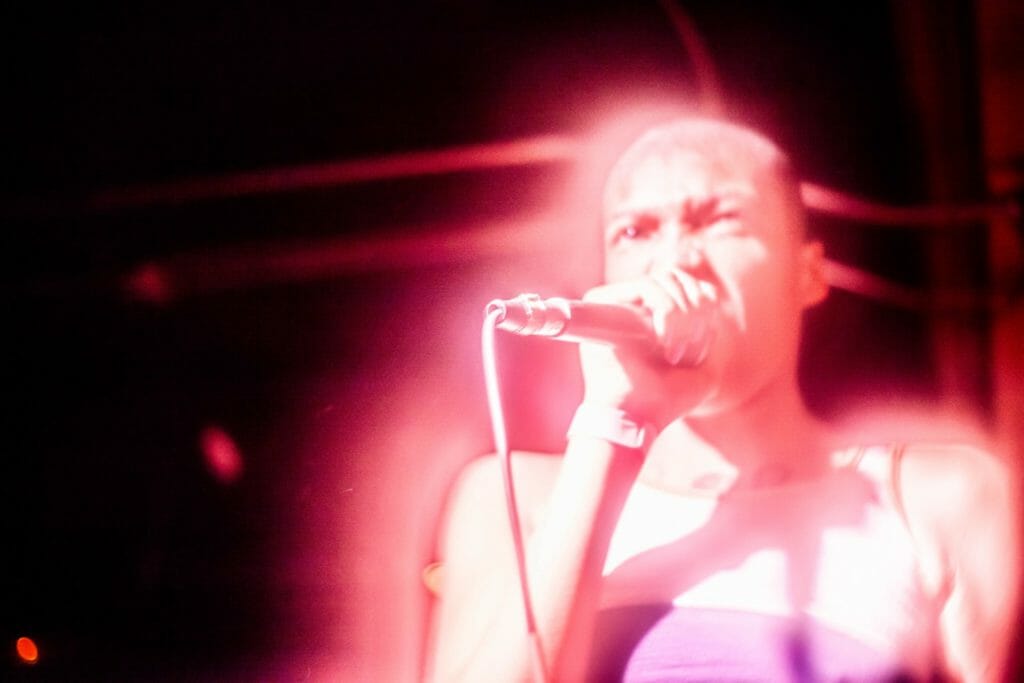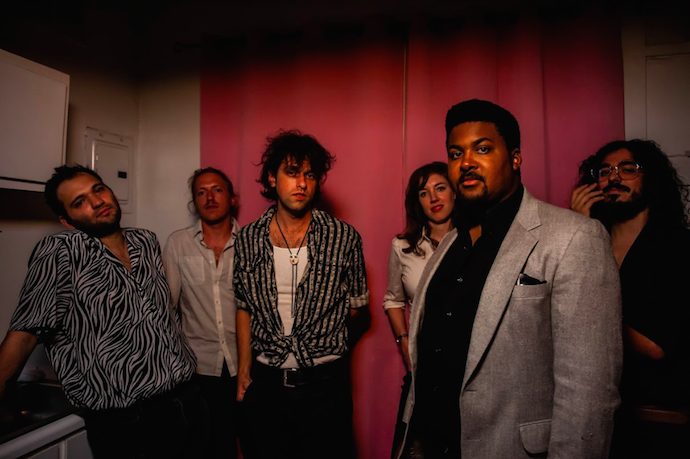Originally published on March 22, 2020, for print publication in “Issue 4: the Boundary Issue.” Due to the effects of the COVID-19 pandemic and a loss of funds, we paused on print publication and released the full issue in digital format. The full PDF download is available here.
New(-ish) Atlanta indie four-piece Sword II might feel like no big thing at first glance. The band self-released its first EP entitled Between II Gardens — four songs stacked with layers of lo-fi samples and lustrous instrumental textures that are bound to draw oversimplified personifications to My Bloody Valentine, True Widow, and Murray Street-era Sonic Youth — into the vast ether of Spotify on Jan. 9, 2020. But underneath, in the stories of its four members, Carter Sutherland (guitar/vocals), Travis Arnold (guitar/vocals), Maria González (bass/vocals), and José Izaguirre (drums), is something critically relevant to the landscape of Atlanta music and its countless splinters.
For anyone slightly embedded in the local Atlanta music scene, Sword II doesn’t arrive as a total stranger. Izaguirre is the guitarist and vocalist for Latinx punk band Yukons, González plays guitar in Latinx lo-fi garage pop outfit Kibi James, Arnold plays guitar in up-and-coming hardcore outfit Playytime, and Sutherland has been in a slew of Atlanta bands over the years, including Sea Ghost and Trashcan. Both Yukons and Kibi James have received exceedingly positive reviews and reception from Atlanta’s music scene since their inceptions, with their names regularly adorning the bills of the city’s most noteworthy line-ups, seemingly moving them forward at a steady pace for some time.
Combine the factors of two relatively busy bands and the fact that most of the members are college students, and it’s reasonable to wonder how Sword II came to exist at all. Beyond the how, there is the question of why Sword II exists. But we’ll get to that.
As for the “how,” well… Sword II pretty much happened on accident. Sword II began as four friends getting together to play music in a basement at Sutherland and Arnold’s Lakewood residence over the course of a year and a half until, boom, they had an EP. But even calling it that feels a little too formal.
“We’re all really close friends in general and we all hang out on a regular basis,” says González. “We started making music at Carter’s, and I don’t know, it was like a year and a half ago or something. This EP is a culmination of different things that we’d worked on. But every time we meet, we just work on something new. Then we were like, ‘Oh, we have all these songs.’ Might as well finish them and share them or something.”
According to Izaguirre, none of them actually meant for this to be a band, and yet, they’ve created something pretty powerful and potent with the smallest of intentions. Clocking in under 20 minutes, Between II Gardens takes you on a stir-crazy course of zig-zag patterns, regularly oscillating between peaceful harmonies and stoner rock and post-punk clamoring. Along with guitar and vocals, Sutherland mans the sampler, which is full of random sounds and clips of outside recordings that have been chopped and screwed beyond recognition to become something new entirely. Opener “Master Plan,” featuring Arnold on vocals, is mesmerizing and ethereal while simultaneously a little catastrophic and confusing, opening the door to the question, “Where the fuck are we going with this, and how did we get here to begin with?”
All fragments work together and are distilled into one sick, hook-driven track that leaves you feeling comforted and on edge at the same time.
Standout track “Garden” features González singing with Sutherland’s vocals kicking in later along with a switch-up in Izaguirre’s drum beat, successfully showing that the members of Sword II are masters of transitioning from one vibe and sound to another. All fragments work together and are distilled into one sick, hook-driven track that leaves you feeling comforted and on edge at the same time. “Energy” is similar but a bit more dreamscape-y, with Sutherland and González complimenting each other’s vocals once again over wonky and bright loops. One notable lyrical moment stands out when Sutherland sings, “I’m full of apathy / Nothing is left for me,” as his and González’s vocals hover over the song’s textures in a detached, ghostly way.
The EP’s closer “Shower” is a course-changer and in some of the best ways, truly making this EP a sort of “sound collage,” if one were to call anything that. Following the light and swerve-y “Energy,” “Shower” begins with a sample of someone saying, “My interest is to have lots of money and buy clothes, to have nice things, and to be someone. I can see it now… ” and it feels as if we are coming to in someone else’s daydream. The words are distorted and delayed over whooshing effects and heavy, fuzzed out barre chords; and then things suddenly lift up, with Arnold singing and González “ooh”-ing in the background. “Shower” is like three tracks wrapped up into one, but it works — except maybe the autotune bit that overcomes the bridge after a slick guitar solo and tattering drum cymbals, which arrives as a bit of an outlier and confusing as to why they used it.
What I gathered is that Sword II is purely extemporaneous — it happens in the moment as it happens.
I arrived to one of Sword II’s band practices with this use of autotune in mind, intending to ask why they chose to use the autotune in that segment of the song. It felt intentional, or at least I thought. However, five minutes into sitting in on the practice session, I realized it probably wasn’t intentional or something they put much thought into, at all. What I gathered is that Sword II is purely extemporaneous — it happens in the moment as it happens, and many decisions are made on the spot, after being only briefly tampered and fucked with. Further, it’s not to impress anyone. Further, Sword II isn’t really for anyone except for them.
The thing about Sword II that could potentially disturb the egos of many in the music scene and industry who are hungrily chasing the rise, exhaustingly trying to “figure out” that perfect recipe of breaking into the business, frantically branding and re-branding, is this: the natural way Sword II operates, in the most minimal sense of the word, actually works in terms of the resulting “product.” Why? Because it’s real, without being overly calculated. We call that “organic.” And all with little to no effort — and little to no consideration of what anyone else might think of it.
Why did they wash out the bridge in “Shower” with a heavy dose of autotune? Because they felt like it… at the time. Will they do that live? No. Did Sutherland seem to forget they used it in the recording that eventually became the official EP release when I asked about it? Yeah, pretty much. Low and behold, folks, not everything is intentional; some things just are they way they are in that moment, never to be seized or regurgitated again.
At practice, Sutherland asked if we could make them “look evil, but like they didn’t care.” Almost everything in the space was on the brink of falling apart, with a sampler resting on two empty upside-down paint buckets and Sutherland’s microphone draped in an old t-shirt for shock prevention. Sutherland was shocked through the fabric a few times throughout practice anyway. In the space, I recall three keyboards, six amps, plus a miniature one on the floor, and a banjo with a message scribed on it that appeared to read, “On June 16, 2017, my feeling grew to something else.” Nothing about Sword II is about status, clout, or even getting shit done. It’s simply about being in a space that was created by the artists for the artists to be themselves without any intrusion or scrutiny.
Nothing about Sword II is about status, clout, or even getting shit done.
This brings us to the “why” behind Sword II, and it’s multi-faceted. Atlanta has no shortage of musical talent. Attending the band’s practice reminded me of the fact that Atlanta has perhaps never fully recovered from the 2015 closing of Thunderbox, which resided near the old Masquerade on North Avenue and was the home of a wide range of bands’ practice space for years. Today, the barrier the city faces far too often is that it cyclically encounters a shortage of both practice and performance spaces for all the bands and talent to go. Naturally, artists and creatives fend for themselves and find other places. They create their own spaces when they have to, because it is in creative expression that many find a gateway to redemption or at the very least relief, therefore constituting it a means of survival. Bands today mostly practice in their homes outside the inner city limits or share spaces located in the less renovated or revitalized parts of town, farther removed from everything else, making creating art a little bit more of a struggle. This is, in part, how gentrification works. And Atlanta sure has a lot of that.
The space challenge the city faces is perpetuated when venues decide to change their booking tastes or in-house booking agents to cater to the demands of people who are moving into these cookie-cutter aspiring neighborhoods, or the venue owners decide they simply don’t want “certain people” in their venues at all. The signs are clear, with windows decked out in flyers touting a multitude of white-washed line-ups as the establishments create even more barriers for DIY artists, especially those in marginalized groups.
Of course, there are alternative solutions to this. In terms of physical space, DIY venues such as Mammal Gallery’s satellite venue Food Court at the MET, the Bakery, and now New Square located downtown are there to provide a platform for such artists to have their shows. Albeit away from where the city experiences the most foot traffic, making it even more difficult for artists to become recognized within the local cultural sphere. This is a problem.
When one takes a look at Atlanta, at first glance they are still bound to think of the peaks of the Black Lips or Deerhunter; and it\’s fair to say those days are long gone.
Additionally and more specifically within the Atlanta music scene, there is a shortage in terms of its catalog — meaning it is not as diverse as it should be. All of which goes back to the premise that there is absolutely no shortage of musical talent in Atlanta, across the board of genres, cultural identities, and various communities. Unfortunately, this richness is not reflected in many show lineups. When one takes a look at Atlanta, at first glance they are still bound to think of the peaks of the Black Lips or Deerhunter; and it’s fair to say those days are long gone. Even when someone takes a closer look, they have to dig pretty deep to find where all the really good stuff is. What a confounding state for a local scene to experience when it has so much culture burgeoning within it. However, this is what happens when there are little means for it to really break free and see the light of day beyond the same two dive bars in East Atlanta, consistently being pushed further into corners both in terms of venues and practice space. As a result, Atlanta is widely perceived to only continue echoing the same shit it’s put out for over a decade.
Back to the question: why does Sword II exist and why is it so important? Because even with two other bands, its members still felt a need to create another space that was detached enough from the “scene” to make them feel completely nurtured and free to fully manifest their identities and tastes.
“When I think of a ‘scene’ here, I think of it as something that I don’t really wanna be a part of,” says Iguazirre. “It’s something I find myself constantly taking space away from and being like, ‘I’m gonna do this with my friends that understand me more,’ because I think it’s just too much of the same or not enough of something I relate to. I love Atlanta, but a lot of time I’m like, this shit is dry as hell.
Both Yukons and Kibi James sing in Spanish in their songs, while Sword II does not — but this doesn’t necessarily make this extension less of a Latinx expression group than the others. When Igazuirre and González met to discuss Sword II, the question about Latinx identity in their music came up.
“It’s like if you have half your brain in Spanish and half of it is in English,” explains González, “and only the English part is getting nurtured, there’s this whole other side of me that I don’t get to express, and it isn’t understood or received by other people. Yeah, it gets kind of repetitive going to the same types of shows that aren’t really up your alley or something you feel passionate about listening to. It’s not against the community or against the DIY scene or anything like that. We support anyone who wants to pursue art at all. But we tend to be more reclusive in ways we would express some things.”
The little press that Yukons has received doesn’t do anything to dig deeper into the Latinx side of the band, which I deemed “weird.” So when I had my chance, I asked why it is important for them to speak up and be loud, primarily because Yukons proclaims in all caps on its Bandcamp:
“I LIVE IN A COUNTRY THAT\’S DISGRACED LATINX PEOPLE. AS A LATINX INDIVIDUAL, I FEEL IT IS IMPORTANT TO CREATE AND SPEAK UP AND SHARE AND BE LOUD RIGHT NOW. PEOPLE GIVE ME DIRTY LOOKS WHEN THEY HEAR MY SPANISH IN PUBLIC NOW. NEARLY HALF THE SONGS ON \’SOUTH OF THE EQUATOR\’ WILL BE IN SPANISH. THAT\’S WHAT LATINX EXPRESSION MEANS.”
“People do ask about it,” Igazuirre clarified, “but it’s weird to talk about it, so it doesn’t come out in the final interview. To me, [it’s] something that I want to incorporate in the music and experiment with and see. The future for music I imagine is a future where projects, bands, and a country can have different languages and not have to keep using the language that’s spoken predominantly in the country where the audience is from. But talking about it’s weird, ’cause it kind of just happens and it’s just the way I make music.”
Therefore, the question becomes, why does it remain necessary to our outer systems that the marginalized stand up for their identities in order for them to be seen and heard?
Upon further reflection, yes. It is weird to ask someone why they think it is so important to speak out on their identity, because it’s their fucking identity. It’s who they are — why wouldn’t that be important for someone? So perhaps the question should be different to reflect the disharmonious nature of our outer systems — the music industry and journalism included — when it comes to their interactions and relations with marginalized groups, including Latinx communities, other POC communities, LGBTQ+ communities, and female-identifying artists. The question should no longer be “why is it so important for marginalized individuals to speak out about their identities?” We should know why by now, and there is no question that they should continue to do so. But there should be a time that marginalized communities are speaking out from a place of pride received with immediate acceptance, not as a means to combat the lack of resources or recognition of their communities. Our country should have evolved past the point of requiring marginalized groups to scream they exist in order for us to know they do.
Therefore, the question becomes, why does it remain necessary to our outer systems that the marginalized stand up for their identities in order for them to be seen and heard? What is it within our outer systems, particularly in the Southeast region, that seems to refuse to meet marginalized individuals where they’re at, not only so they can be heard and seen fully, but nurtured, as well? Because the outer systems, put simply, weren’t built for us. They were built for one type of person, and in order for those outer systems to continue to thrive, the marginalized have to stay marginalized.
Our country should have evolved past the point of requiring marginalized groups to scream they exist in order for us to know that they do.
This interview occurred a day or so after the Supreme Court made a 5-4 decision that cleared the way for the Trump administration to make it more difficult for low-income immigrants seeking to come to or trying to remain legally in the United States. This decision affects immigrants who currently rely on public assistance, including most forms of Medicaid, food stamps, and housing vouchers, according to CNN on Jan. 27, 2020. Basically, if you’re too poor to live here, you can’t live here. Igazuirre heard the story on NPR one morning, with his radio dial left on WRAS 88.5, which is Georgia State University’s independent radio station at night and NPR during the day — another example of cultural gentrification Atlanta has experienced in the past decade.
“[NPR] was on and it was the Supreme Court or Congress talking and shit,” he said calmly, but annoyed. “I was like, all of these guys sound like idiots. I don’t care what side you’re on. It’s all really disappointing to me, and I feel really detached from politics as a whole. Because it’s all kind of devastating to me how everything kind of plays out in politics, and in every country, too. Not just here. How can I learn to communicate with the people around me? How can I communicate with somebody next to me and be better at that, and also respect myself and give myself space, too? Because I think even that is political, the way you navigate it.”
How can I communicate with the people around me? How can I communicate with somebody next to me and be better at that, and also respect myself and give myself space, too? Because I think even that is political, the way you navigate it.
José Izaguirre
González added, “For me, it’s more rewarding to work on what I can change and the spaces around me… and through our platform, we are giving it to someone else. People see the stuff we put out and we share things we think people should see. If music is something I can do and that helps make people feel represented, that’s the thing that changes things upward and outward.”
For a band that wasn’t intended to be much of anything, Sword II represents a lot — it represents the void that exists in Atlanta’s local music scene and culture, the need to further create spaces for people to comfortably exist, and it’s a lethal injection of lush into a scene that tends to be subjected to the same, repetitive dryness that many of us have become overly accustomed to. More importantly, Sword II is part of the ripple effect; the one that says we exist, too, to those who need to hear it most.




